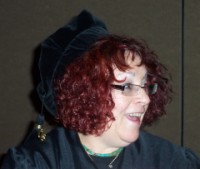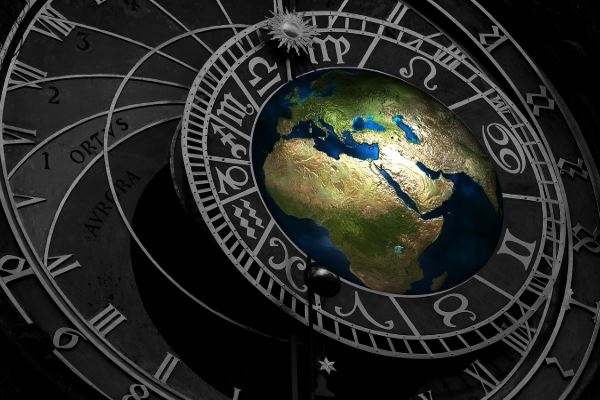In Kepler’s academic and its certificate program, all graduates must create a demonstration of learning – a final project.
I know that it seems like a daunting task that looms at the end of the senior year, the senior project but it need not be. All that is really needed planning and the help of our great teachers. In the article below is the rough sketch of what my senior project idea became. I was curious to know how astrologers fared professionally in comparison to other established professions, including the one that I had been practicing for 40 years. I thought that the best people to ask the question to be the professional astrologers and the place would be United Astrology Conference in Denver. The rest of this article is the outcome of the survey that would morph into my final senior project and go on to be published in the ISAR journal The International Astrologer.
Skeptics have often leveled criticism on the lack of professional standards in astrology and/or professionalism of the astrologers who practice it. The purpose of this research is to follow up on a survey distributed fourteen years ago on the state of professionalism in the practice of astrology among practicing astrologers and to note any change of findings from the prior study. This new survey was conducted at the United Astrology Conference (UAC) in Denver, Colorado in May of 2008.
Upon reviewing the Tunney survey of 1994 that was called Project Focus and the synopsis of the 6-page Tunney survey, it was possible to recognize how the two surveys findings dovetail. The original survey results were presented at the United Astrology Conference in Monterey California in 1995. Of the approximate 5000, surveys sent out across the country the results were based on the 1000 that were returned to them and of that group, 657 were actually analyzed.[1] Though these surveys were taken 14 years apart, it was interesting to note that the same issues on professionalism especially wages and remunerations for services surfaced.
Of the questions that were revisited in the 2008 survey, one related to the proficiency of the astrologers who practice today. Today’s astrologers are taking advantage of the astrological specialty schools that were not availed to them in 1994, to better prepare themselves for a career shift or to enable them to make a living wage in the field. The core curriculum for astrological schools suggested in the synopsis of the Tunney survey has in fact become a reality. The various schools where this core curriculum is practiced currently are Kepler College, Avalon School of Astrology, the International Academy of Astrology (formerly the Online College of Astrology) along with the American College of Vedic Astrology. In the current survey (2008), 11% responded that they were utilizing an authorized college and 6% were utilizing an astrology trade school. More than half of the respondents (47 out of 87) have tested and passed the various professional certifications on proficiency. Still of the majority of the participants who answered the new survey, 80% utilized conferences for continuing education and educational purposes. In addition to this, the second largest group, 62%, used local organizations and guest lecture workshops to meet their educational needs.
The astrologers answering the current survey are just as educated as were the population found responding to Tunney’s survey. Thirty-one people out of the 87 held Bachelor’s degrees and 27 people held Masters Degrees. Many astrologers hold these degrees in other aligned fields such as social work, psychology and computer sciences. Compared to the Tunney survey, the 2008 survey is about the same in relation to the levels of academic education held by astrologers overall.[2]
Many astrologers teach astrology, yet they are not mentoring new astrologers. I find this to be an interesting juxtaposition since in the Eastern region of the globe the astrology teachers are also expected to act as mentor to their student once that student has graduated. This is seen as an integral part of the Teacher/Student relationship.
Another similarity in both of the surveys that surfaced was the question addressing the dilemma of “are we able to support ourselves or a family with an astrological practice”?
The majority of people who answered the current survey cannot and do not work fulltime in astrology nor support themselves adequately. In the Tunney survey 37% of the part-time astrologers reported making one to ten percent of their gross yearly incomes from their work in astrology. Only 46% reported making a 100% of their salaries from their practice. In that survey, they did not ask a range of yearly incomes. The results of the 2008 survey, which did list yearly income amounts, the majority, did not feel that they could make nor made an adequate salary from their practice. Their practice was only a part-time business venture. This fact was also evident in the Tunney survey results and has not changed significantly.[3][4] The Tunney survey demonstrated the fact that regular wages from an astrology practice were not necessarily important to the participants of that survey.[5][6]
As a group, we are highly educated people who do not seem to be compensated adequately for our skills, knowledge and expertise. This lack of compensation can become a negative for any industry, therefore not attracting or maintaining new, younger and more educated practitioners to carry on the profession.
According to Tunney’s survey, the majority of Astrologers were women, which is true today. However, the younger astrologers it seems are more evenly divided as evidenced by the United Astrologers Conference in Denver. However mostly women were reflected in the respondents to the survey of 2008.
After the first survey’s results presented in April of 1995 at United Astrologers Conference in Monterey California, the same issues are still evident after 14 years. Astrologers work day jobs while conducting part-time practices. Astrologers considered themselves professional once we were paid for our first consultation and/or after a one to five year period.
The overall population surveyed was members of professional organizations with only 1% of the replying as being non members. This would mean that all of the respondents received professional publications except for that one percent. In addition to the professional journals, the majority of the astrologers surveyed subscribe to other astrological magazines.
In conclusion, in light of the findings in the UAC survey of 2008, it is my opinion that the status of astrology as a profession in the United States would profit from an intensive public relations campaign educating astrologers to take themselves more professionally. Additionally this would also consist of educating of the public to the fact that there is more to astrology than just your sun sign or entertainment found in the back of the newspaper on the comic page. The astrological community might be able to demonstrate how astrology can serve an individual to live a fuller, more rewarding and conscious life than they might be living now.
The astrological community might be able to accomplish this through the education of the wider public as to the historical background of astrology through the ages, illustrating the validity and usage of astrology over the centuries. Possibly, if the general population was made aware of the deep philosophical and intellectual origins of astrology rooted in the beginnings of the Eastern and Western civilizations, this might add to its credibility.
Additionally, it could be demonstrated through the works of credible scholars such as Richard Tarnas, Ph.D. of Pacifica University, the works of the late David Pingree of Brown University and the research contained at Warburg Institute of London, astrology’s critical role in the formation and growth of the other mainstream sciences of today. The restoration of the history of astrology might allow and lead to a better understanding of the ability of astrology, demonstrated as a useful tool. This tool was utilized by multiple previous generations for guidance in worldly affairs, for the explanations of the cycles of the planets in relationship to their impact on humanity, the seasons and Earth.[7]
A change in the public’s perception could lead to challenging various laws against astrology. That may mean laws against astrology some, written in the Seventeenth Century, would need to be revisited and updated in light of the reality of astrology as practiced today, which is emerging as a adjunct to the helper professions. The establishment of credentialed and certified practitioners adhering to a code of ethics, with strong mentorship development, would go a long way toward improving the public perception in this country on the subject of astrology and astrologers.
It may serve us well to be the advocates for required standards of professionalism, not just for our own standing in the community, but also for the future of the profession.
Notes
[1] Ibid. pg 1
[2] Ibid Pg.3
[3] Ibid Pg.4
[4] In my opinion, this could be influenced by the public’s perception of astrologers. We may be perceived as a “fortune teller or gypsy”, and therefore not viewed as capable extensions of other helping professions
[5] Ibid Pg.3
[6] In the astrology profession of today, this may not and is not necessarily true for the newer batch of upcoming astrologers.
[7] Personally, I have had the experience of explaining to individuals in my work place the actual basis and history of astrology and they then in turn achieved a different perception of the subject.
 by Jacqueline Menkes, Senior Project, Class of 2008
by Jacqueline Menkes, Senior Project, Class of 2008



